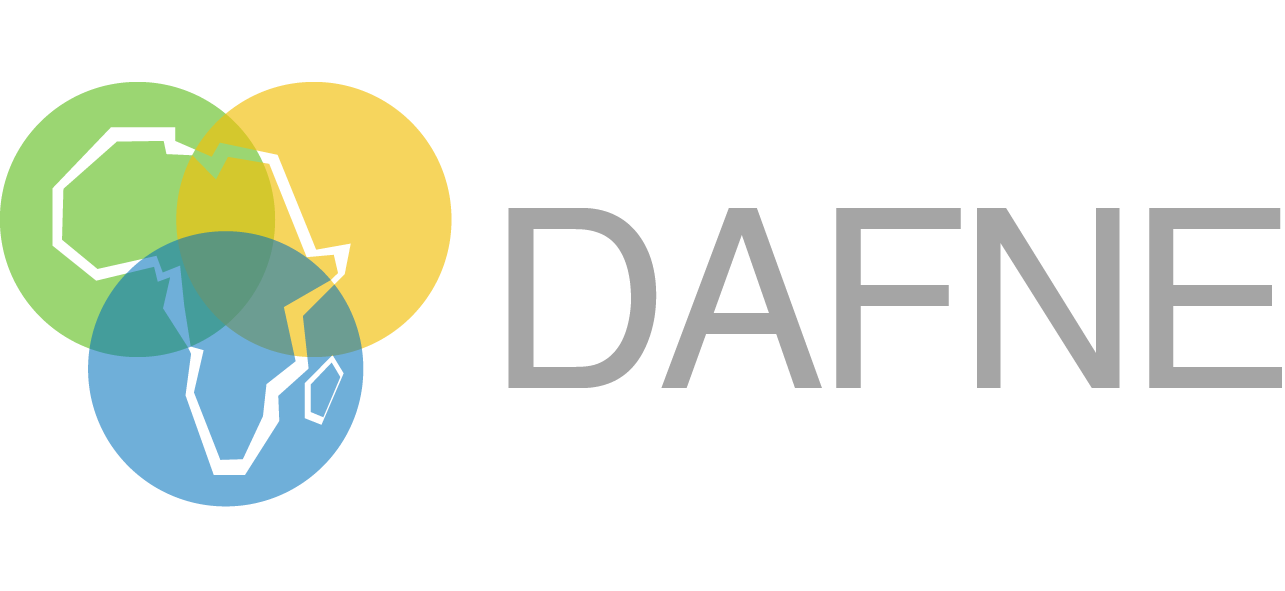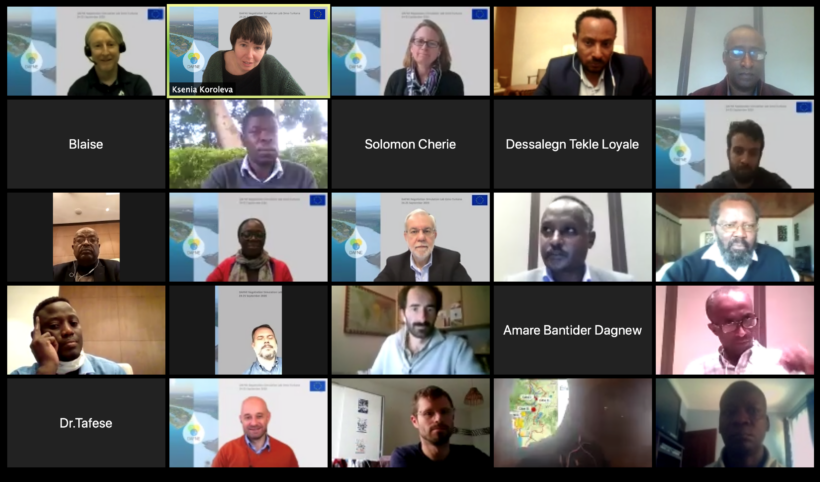Following DAFNE’s final Negotiation Simulation Lab (NSL) in the Zambezi River Basin in July, the project team held the final NSL for the Omo-Turkana basins of Ethiopia and Kenya. As in the Zambezi, the project teams represented by WLRC in Ethiopia and ACCESS in Kenya, invited stakeholders to a hybrid meeting with stakekholders joining online and in a hotel in Addis Ababa. Together there were 20 stakeholder participants from the two countries representing the water, energy and agriculture sectors as well as culture and tourism and pastoralist organisations.
The project partners presented latest project developments, including work carried out in the regions especially related to analysing the causes and effects of flooding in the lower Omo, the modeling work completed, the solutions and pathways that have been developed as well as the social learning process in the project. The participants expressed their support for the fact that fish production has now been included in the DAF model. There was a hands-on session with all participants having the the opportunity to interact with DAFNE’s knowledge visualization tools – the Multi-Perspective Visualization Tool and the Geoportal. They learned about the newest functionalities and how the tools can be applied. These MPVT and Geoportal will be made available at end of the project in October together with training videos and slides.
An important conclusion to the meeting was the way forward: The application of the DAFNE approach in real-world decision and policy making processes together with the implementation of project outcomes after the project’s finalization were discussed.
The four years of the DAFNE collaboration are now approaching an end and it is hoped that the stakeholders representing the sectors involved in the management of the Omo-Turkana will find the DAFNE approach, tools and models including the model of a negotiation lab a significant support to their future efforts to manage the basins sustainably.



Leave a Reply